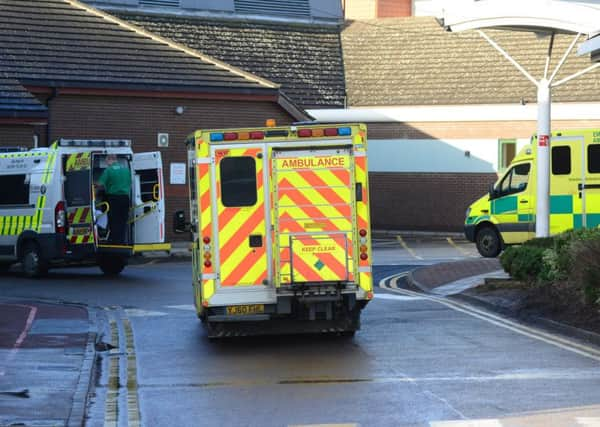Firms fined after Barnsley patient’s death


Neil Judge, from Barnsley, South Yorkshire, suffered multi-organ failure while he was being treated at the Northern General Hospital, in Sheffield, in November 2010, according to the Medicines and Healthcare products Regulatory Agency (MHRA).
An investigation found Mr Judge, 58, had been treated with a batch of intravenous insulin syringes that actually contained no insulin at all, just saline.
Advertisement
Hide AdAdvertisement
Hide AdHis multi-organ failure was triggered by diabetic ketoacidosis because his body was deprived of insulin for more than 13 hours, the MHRA said.
A judge at Sheffield Crown Court heard today how the faulty syringes were supplied to Sheffield Teaching Hospitals NHS Foundation Trust by Fresenius Kabi Ltd as a licensed wholesaler for Calea UK Ltd, which manufactured the product.
The agency said Fresenius Kabi, of Eastgate Way, Manor Park, Runcorn, was fined a total of £500,000 and ordered to pay a further £5,900 in costs after pleading guilty to breaching Sections 64(1) and 67(2) of the Medicines Act 1968.
Calea UK, of the same address, was fined £50,000 with £5,900 costs after also pleading guilty to similar breaches.
Advertisement
Hide AdAdvertisement
Hide AdLast year, Sheffield coroner Chris Dorries ruled that the diabetic ketoacidosis arising out of the manufacturing error was a “major contributory factor” in Mr Judge’s death.
The MHRA said Calea also manufactured a batch of pre-prepared Tobramycin syringes - used to treat infections - that were administered to a patient with cystic fibrosis at the Royal Shrewsbury Hospital in August 2011.
On this occasion the syringes, which were prepared and delivered direct for the patient by Calea, were each found to contain three times the prescribed daily dose.
The over medication came to light after the patient reported an adverse reaction, described as a fizzing sensation, although there were no lasting effects.
Advertisement
Hide AdAdvertisement
Hide AdAccording to the agency, the court was told the two incidents followed a series of inspections by MHRA officials that highlighted deficiencies at the Runcorn site where Calea and Fresenius Kabi operated. They included concerns that there was no investigation regime in place to identify potential defects and prevent future recurrence when defective products were detected.
Alastair Jeffrey, MHRA head of enforcement, said: “Fresenius Kabi Ltd and Calea UK Ltd are equally responsible for the medicinal failure that was a major contributing factor in the tragic death of Neil Judge, who was deprived of the vital insulin his body needed because of a serious manufacturing error.
“Thankfully the patient who was administered an overdose of Tobramycin was relatively unharmed, but the consequences could have been more serious had hospital staff not responded to his complaints.
“The two companies are very closely linked, and the onus is on them both to produce and supply products that are fit for purpose and that conform to precise specifications for each and every batch.
“I hope this case serves as a clear reminder to others, as MHRA will not hesitate to take enforcement action when serious failings occur.”